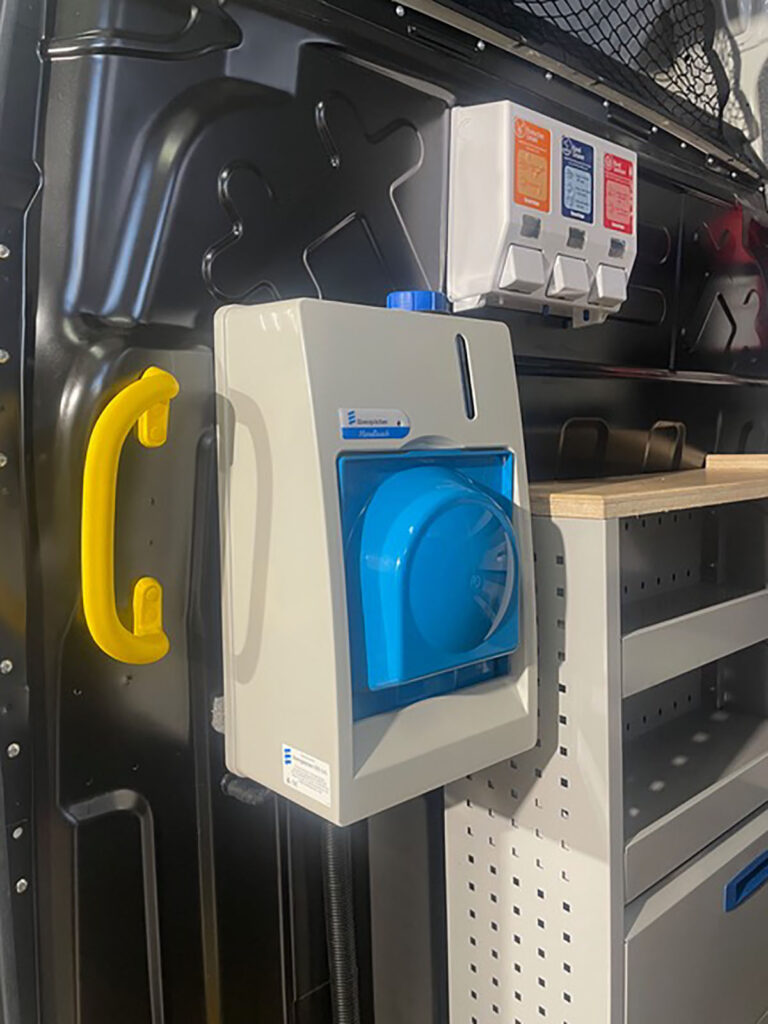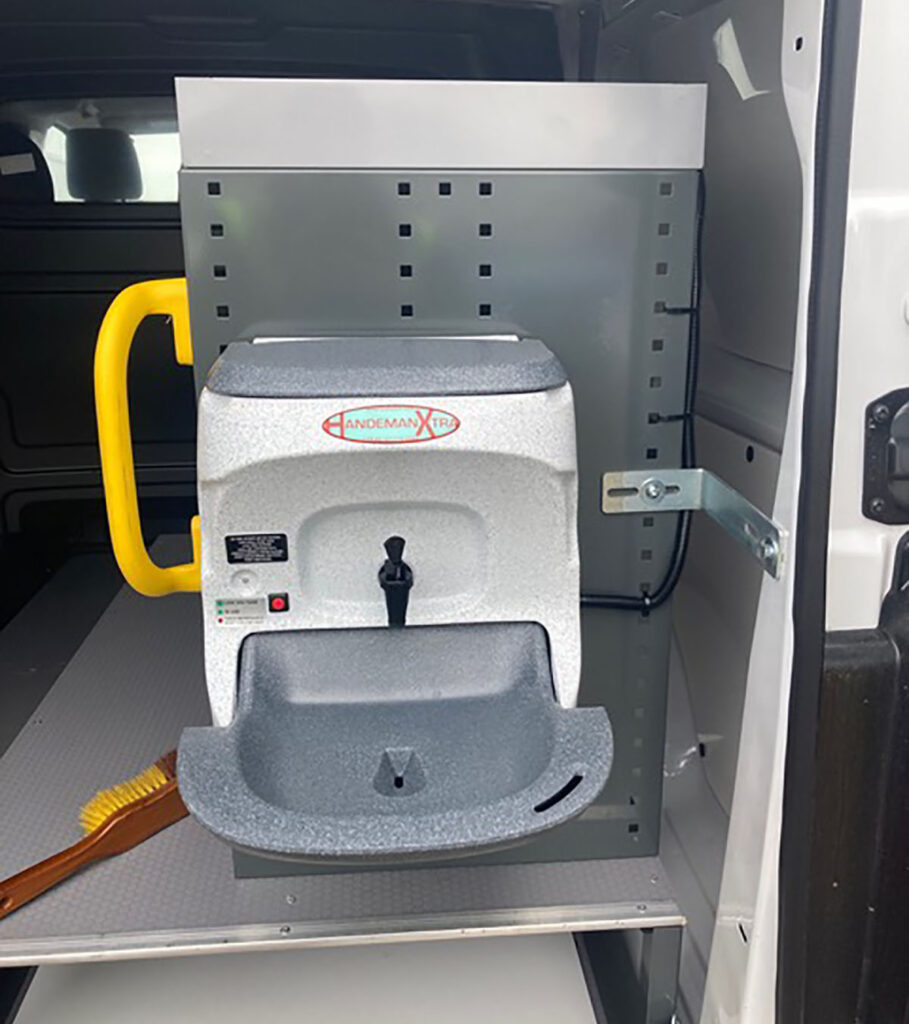
A handwash facility in a commercial vehicle refers to a built-in or portable system that allows drivers and personnel to wash their hands while on the go, especially in sectors like food delivery, healthcare, transportation, and logistics.
These facilities are essential for maintaining hygiene, particularly when handling food, medical supplies, or in situations.
Health and Safety Compliance: Many industries are subject to strict health and safety regulations that require maintaining proper hygiene standards. An onboard handwash facility helps companies comply with these regulations.
Prevention of Contamination: Regular handwashing minimizes the risk of contamination, especially for vehicles involved in transporting food or medical supplies. It helps protect both personnel and customers from potential pathogens.
Increased Efficiency: Having a handwash facility onboard saves time, as drivers and staff can wash their hands without needing to locate external facilities.
Compact Design: Handwash systems must be designed to fit within the limited space of a vehicle while maintaining functionality.
Water Supply: Facilities usually include a water tank or connection to the vehicle’s water system, ensuring adequate water is available for washing hands.
Soap Dispensing: Built-in dispensers for liquid soap or hand sanitizer are essential for effective hand hygiene.
Drainage System: Proper drainage is necessary to prevent water from accumulating inside the vehicle, fostering a safe and sanitary environment.
User-Friendly Controls: The system should be easy to operate, allowing quick access to water and soap, even while wearing gloves.
Durability: Components should be made from materials resistant to wear and tear, as well as moisture and corrosion, ensuring longevity and reliability.
Optional Heating: Some facilities might include the option for heated water to enhance comfort and effectiveness during colder conditions.
Enhanced Hygiene: Direct access to handwashing ensures that all personnel can maintain cleanliness, especially after handling goods or before meals.
Improved Image and Trust: For businesses dealing with food or health-related products, having handwashing facilities demonstrates a commitment to hygiene, fostering trust and loyalty among customers.
Operational Flexibility: On-the-go handwashing provides flexibility, allowing drivers to manage hygiene needs without delays or detours.
Cost-Effectiveness: Investing in an onboard facility can reduce the need for frequent stops at external wash stations, saving time and fuel costs.
Considerations for Implementation
Vehicle Compatibility: Assess the vehicle model to determine the best type of handwashing solution that will fit without compromising cargo space or functionality.
Regulatory Requirements: Ensure that the installation meets industry standards and local regulations regarding hygiene, safety, and waste disposal.
Maintenance Needs: Regular checks are necessary to ensure the system operates smoothly, including water levels, drainage, and cleanliness of dispensers.
Training for Personnel: Staff should be trained in how to use the handwash facility effectively and the importance of maintenance and hygiene practices.
Fitting commercial vehicles with handwash facilities is a practical innovation that enhances hygiene, complies with health regulations, and boosts operational efficiency.
By investing in such solutions, businesses can demonstrate their commitment to safety and quality, ultimately improving their reputation and customer satisfaction.
We specialize in equipping commercial vehicles with high-quality, efficient handwash facilities. Our experienced team can guide you through selecting the right system tailored to your fleet’s needs.



